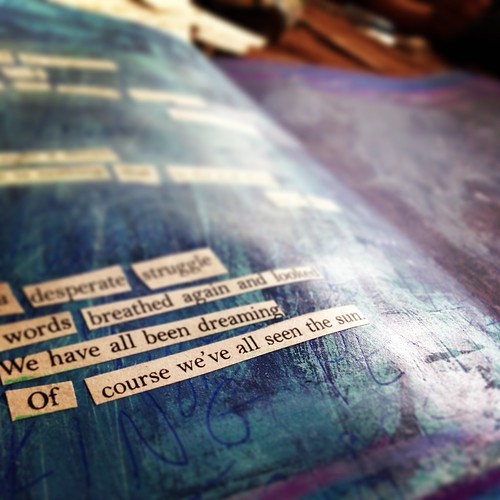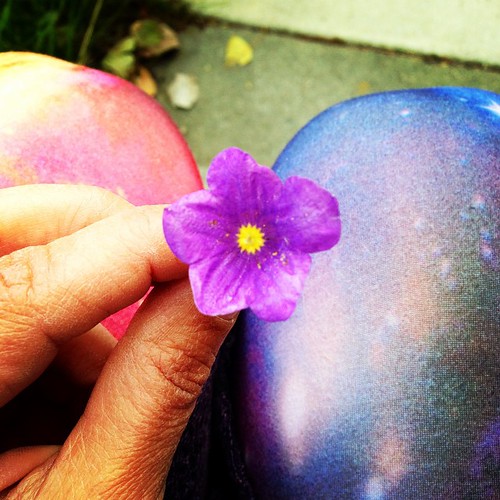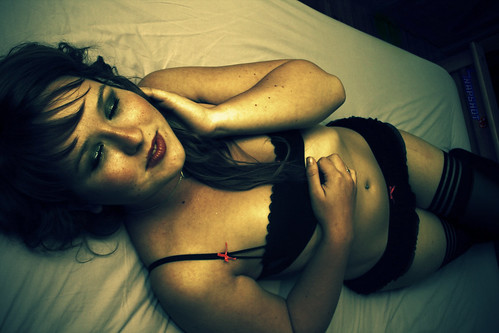I am angry.
This is a portrait of the woman, angry.
Because I was made certain promises, promises that did not come through.
Because every day I hear of more and more people who were handed those same broken promises.
Or -- dare I say it -- the same lies.
And I am angry.
I wonder if you will be angry, too.
* * *
I trusted.
This is a portrait of the girl, trusting those words spoken by others as certainty.
Perhaps you've heard them, too.
Save yourself for marriage.
True love waits.
Resist the devil and he [and his sexual temptations] will flee from you.
Sex is dirty.
Your body is dirty.
You are dirty if you think/want/wonder about sex.
Save yourself for marriage, and you will never regret it for a moment.
I listened. I waited. I saved myself.
I will regret it for a lifetime.
* * *
I feel betrayed.
This is a portrait of the woman, betrayed.
The betrayal, the regret, was born on my wedding night. The night that finally -- f i n a l l y -- after twenty six years of life, it was acceptable for me to be a sexual being. Not too sexual, of course, but sex was finally permissible.
My husband and I came as virgins to the marriage bed. And --
we walked away virgins.
We did not have sex until four months after our wedding.
I did not enjoy sex for years after our wedding.
And we didn't learn why we couldn't have sex until many weeks after our wedding.
This wounds us, wounds my husband and I to this day.
* * *
I was broken.
This is a portrait of the woman, broken in body.
Or really, not broken. Not breakable. That was the problem, you see.
I trusted the church, trusted the people who said to wait, wait for sex. I told them I was worried, because I couldn't even wear a tampon. It wouldn't go in. It felt excruciating. They told me this was normal, that all would be made right on my wedding night.
It takes a penis, I figured.
But they were wrong. I was wrong.
Because what it really took was a surgery. Did you know that a woman's hymen can sometimes be not-mesh, not-breakable, can be skin? Skin with holes in it so she can menstruate regularly, unsuspecting?
I didn't. And mine was.
My gynecologist was shocked that I got to my wedding night without knowing this about myself, my body. She said this condition is not uncommon, but quite rare to remain undiscovered in the way mine was.
One surgery, a complicated healing, and a full season of the year, we consummated our marriage. And when we did, it hurt like hell -- for years.
But what hurt even more is that I had done what the elders of the church told me to do.
John and Stasi, Shaunti, the few women in my life who were talking about sex and such, the leaders of the local and global church -- you promised me that the wait was worth it.
And it wasn't.
* * *
I am hurt.
This is a portrait of the woman, hurt by some of the very things she was taught would save her.
It's not just about my irregular hymen. That makes for a dramatic story, of course, and it was anguishing to live.
But even if my husband and I had fully, awkwardly consummated our marriage on our wedding night, I would still be angry.
Because my sexuality is mine. It is a part of me. It is mine to know, to enjoy, to create life with.
And the church made it not-mine.
I believed that if I waited to have sex, I would be handing my husband a priceless gift.
But the reality is that I gave my sexuality to the church -- or to God, if that sits better with you. And therefore it was not mine to give to anyone else. I didn't have a clue about how my body worked, about anything but the very basic mechanics of sex.
And I think that for a woman to reach her marriage bed without a working knowledge of her sexuality -- without knowing what makes her tick, sigh, moan, orgasm -- she has nothing to give to her husband but a passive piece of flesh.
An unknowledgeable, fearful woman lying flinching on a mattress is not much of a gift at all.
* * *
I am embodied.
This is a portrait of the woman, embodied.
Because now, I know my self. I know my body. She is mine, I have learned how to inhabit her fully.
Did you know that I only recently had my first satisfying orgasm?
My husband and I will be married for seven years. It took me seven years of idling passive in bed, certain that a woman wasn't "supposed" to be alive, active, asking, needing in terms of sex and the having of it, to finally throw all that garbage out the window.
And let me just say -- seven years is too damn long.
I didn't -- couldn't -- enjoy sex for seven years because I didn't own my own skin. I didn't own my own sexuality. Because I was not fully at home in this luscious body.
Both my husband and I agree that we regret waiting to make love until after "I do." Not just because of the hymen thing, although we both would have really, really (really) loved to have dealt with that before our honeymoon.
But because sexuality is an aspect of embodiment, of personhood, of compatibility that should be taken into account when deciding whether to marry a certain somebody -- one that the church not only does not value, but ignores at best and demonizes at worst.
I think that if my husband and I had come to our marriage as whole persons, sexuality included and embraced, our early years as one flesh would have been, could have been different. Better, if not in all ways, then certainly in some ways.
Not because we would have slept around, not because we would have mindlessly fucked anything of the opposite sex that moved our way. But because we would have shared all of ourselves with each other, and known more fully whether we loved each other.
* * *
I am speaking.
This is a portrait of the woman, speaking about what does not get spoken of often enough.
Because it's not just me, not just my husband and I struggling still because of how the sexual realm was handled when we were younger.
No, there are many -- too many -- other couples whose marriages are on the rocks because of this whole sex thing. They lacked that certain something, that special spark that forever lovers share, but they didn't know they lacked it because they didn't know each other fully before they wed.
I know couples who felt a blaring lack of spark before they got married, and were told by trusted pastors to marry anyway, that it would come -- and, years and years and children later, it has not come.
I know couples who are living in turmoil because one spouse has finally, finally awakened to his or her (more often it's her, intriguingly) sexuality, and now needs to the freedom to explore it, to own it, but the other spouse will not or cannot meet them there. And so the light of growth, of embodiment, that had finally begun to truly burn is doused.
We should have known who we were as fully as possible before rings were exchanged. We should have made our marriage choices based on whole persons, and we didn't. We couldn't. We were told to do so was bad -- no, was sin.
And now I see an epidemic of failed marriages of those who perhaps never should have married in the first place.
* * *
I am thinking.
This is a portrait of the woman, thinking about sex and lies and how to start fixing this big damn mess.
It's not just about sex, this mess, this epidemic. But sex and the vilification of sex is a big part of it -- and an even bigger part of the rape culture that we live in (and yes,
we do live in a rape culture -- and while the church is not the only one responsible for rape culture, the church is also a major encourager of it).
Do all Christian couples experience this disappointment in waiting? No. Definitely not. And for those couples, I am sincerely glad. I truly delight in and celebrate the uncomplicated nature of sex and sexuality in your marriage and your life.
For the rest of us, however, I demand alternatives -- an alternative vocabulary for discussing sex and sexuality, for exploring one's self before and after the wedding day, for embracing sex as the beautiful expression of love and intimacy that it is. Because I believe that such alternatives will create more mature, responsible, and healthy people -- and marriages.
Here are some starters for sexuality-related alternatives I would love to see:
- sex and the body embraced as the lovely gifts and works of art that they are
- a discussion of what masturbation is and how it can be helpful, healthy, and fun
- parents encouraging teens to appreciate their sexuality while also helping them to be responsible for it in a way that won't make them scared of it (i.e., encouragement for youths to know all of themselves, and be responsible for all of themselves)
- authentic conversations about what sex is for, and how to decide for one's self when to have it
- "sex = dirty" talk ditched
- an end to the objectification of women and women's bodies, and, relatedly, an end to the overtly communicated lie that men are victims of their bodies' naturally functionally mechanisms of arousal
- the glorification of virgins and virginity
- abstinence-only sex "education" eradicated; it has been proven not to work
- gender equality, equivalent rights and opportunities and respect for women in practice, etc.
As for my husband and I . . . well, we're making it work, or trying to. We're becoming more and more whole, each of us more and more of who we are --
all of who we are. This is hard to do when you're married and have a kid, hard to do now this work that was made for young adulthood. But we're doing it anyway, because the alternative is soul death. And we've had enough of that.
Your turn -- how has your experience of sex and sexuality and related discussion, vocabulary, indoctrination, education/lack of education impacted your current sexual/marital/personal health? What would you like to see change in our culture, and in religious culture? What do you think should stay the same?
*this post contains affiliate links


